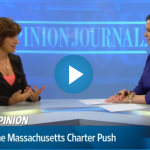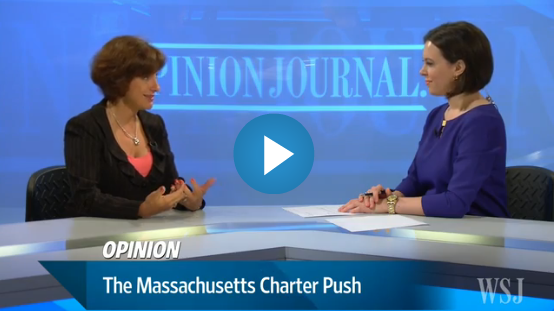October 21, 2015
Kara Kerwin, president of The Center for Education Reform (CER), issued the following statement on the passage of the SOAR Act (H.R. 10) by the U.S. House of Representatives by a vote of 240-191 late this afternoon:
“Lawmakers should be commended for cutting through the false rhetoric surrounding one of the most important programs for D.C. students and reauthorizing the Opportunity Scholarship Program (OSP) via the SOAR Act.
“The tangible and intangible benefits of the D.C. OSP are clear. In addition to scholarship students graduating at 93 percent, a much higher rate than D.C.’s traditional public schools, parents of voucher students report high levels of satisfaction with their children’s schools.
“The SOAR Act reauthorizes an important three-sector approach that provides $60 million overall, or $20 million each for the D.C. OSP, public charter schools, which educate nearly half of D.C. students, and traditional public schools. Parents being able to have a say in their children’s education thanks to choices from vouchers and public charter schools has without a doubt helped improve student outcomes and uplift the quality of education in our nation’s capital.
“Thank you to all in the House demonstrating bipartisan commitment to families and students in D.C., and I urge the Senate to follow suit with swift passage.”












The Future of Education Reform in Washington, D.C.
On October 15th, I attended an event regarding education reform in our city, Washington D.C. This event was hosted by the Progressive Policy Institute and featured speakers who work and advocate for education reform, including former mayor Vincent Gray, Richard Whitmire, David Osborne, Jennifer Niles and Scott Pearson.
The speakers laughed, joked with each other, and spoke in a way that was straightforward and easily understood. This made the event much more pleasant for me as at times the ideas can be very complex, and I am no pro when it comes to education reform. However, I was able to keep up with every conversation between the panelists, which left me feeling in the loop, rather than bewildered and disconnected from the topics. I was somewhat familiar with many of the topics discussed, but as always, there were many astonishing takeaways.
First, one of the speakers touched upon standardized testing and graduation rates. He lectured that test scores should not be the main focus; the percentage of graduating students should be the focus.
“The most important outcomes are not test scores. The most important outcomes are peoples’ lives,” he said.
This inspired me very much. While standardized test scores are important, they aren’t the only factor indicative of a student’s success. The attention should be on student outcomes as a whole, setting up students to have the tools and skills they need to earn a degree and have an active role in the workforce.
Charter schools focus heavily on a myriad of academic outcomes. If a charter school performs poorly and the outcomes of the students are negative, the school will be shut down. In this way, charter schools are held more accountable in Washington, D.C. (and across the nation) than their traditional public school counterparts. “If you don’t get better, you’re going to go out of business,” explained former D.C. mayor, Vincent Gray.
Charter schools are motivated by the idea that if they do not accomplish the goals outlined in their charter, they will close, and this is necessary because it holds schools accountable for their performance.
Lastly, I was very proud to know that D.C. charters are considered “the healthiest charter sector in the USA.” The Center for Education Reform’s 2015 Charter Laws Across The States: Ranking and Scorecard ranks DC’s law as first, beating out all states in the country.
“We ought to be excited about how far we’ve come,” said Mr. Gray, “We’ve come light years in a short period of time — 15 years.”
The District has made immense progress regarding school reform and charter schools. I have always heard from my friends that “D.C. public schools are awful,” and “D.C. schools are the worst,” but I don’t think that anybody, myself included, realized that schooling in D.C. is rapidly improving. Whether it’s because parents have the choice of where to send their child, more charters are opening, or the word on education reform is spreading and people are becoming more informed, change is happening! Though we still have a long way to go, I am proud to be from such a dynamic, progressive, and ever-evolving city.
Gianna Manzella, CER Intern